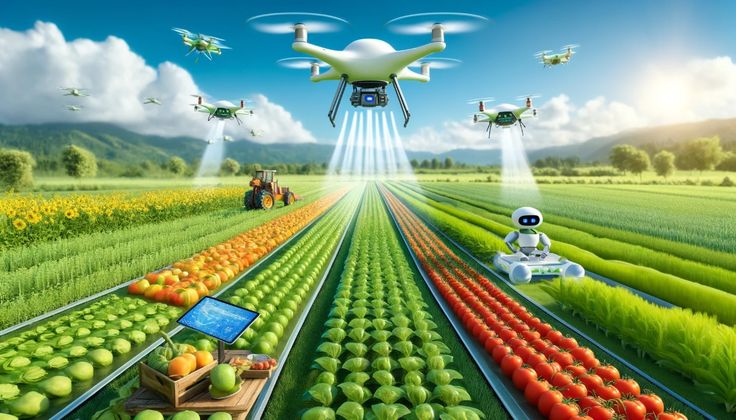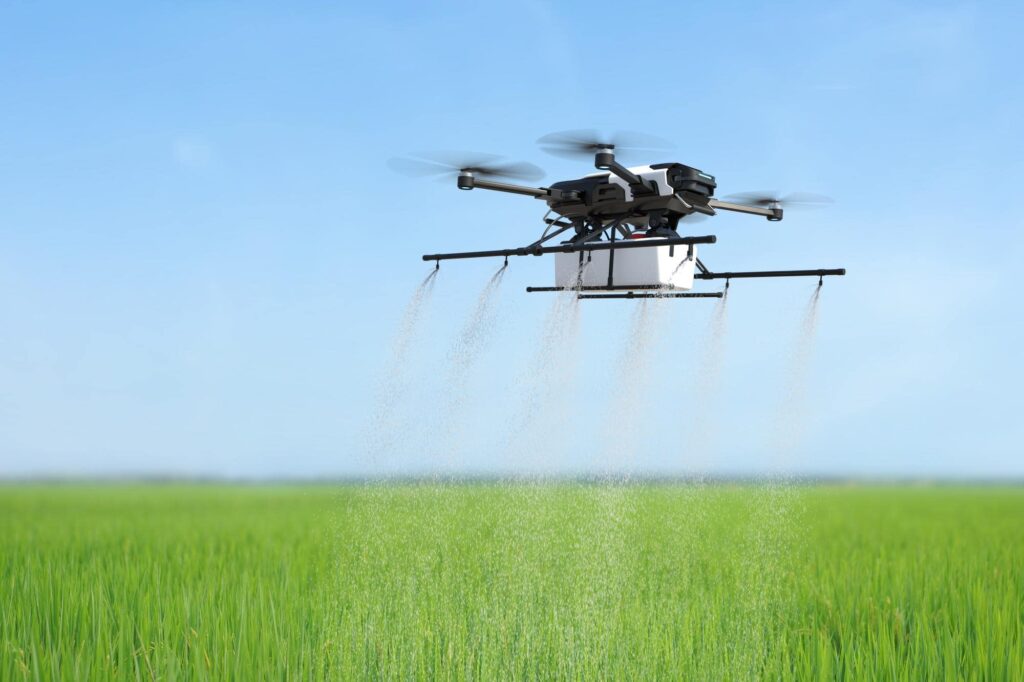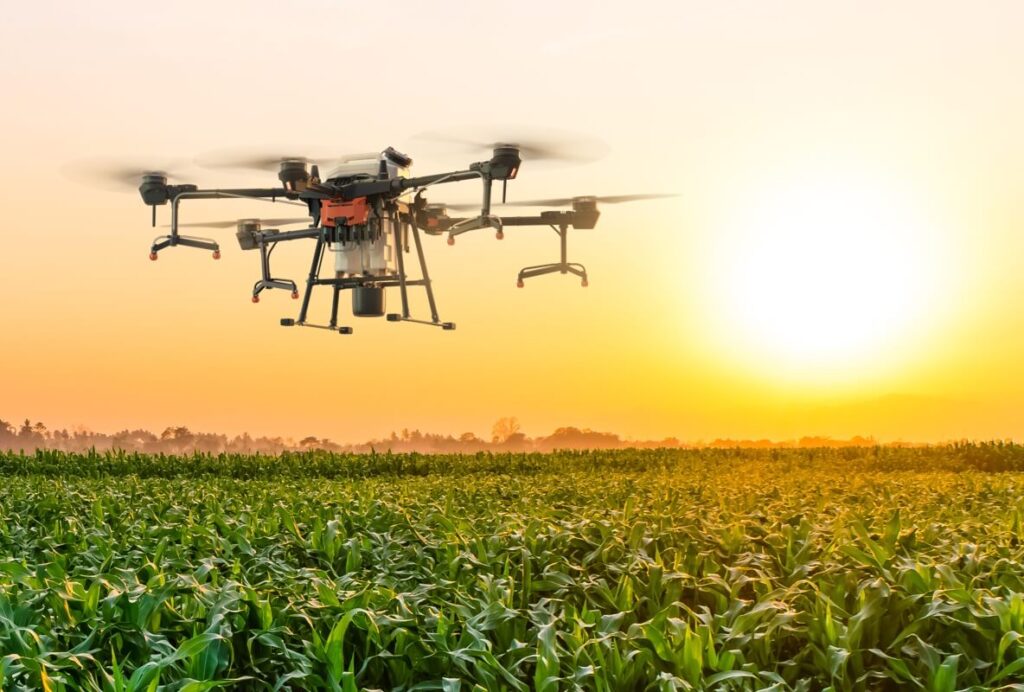Meta Description
“Discover how precision agriculture with drones is transforming crop health monitoring and boosting yields through advanced aerial surveys.”
Introduction
Technology is revolutionizing agriculture, with drones at the forefront of this transformation. Precision agriculture drones are changing the way farmers monitor crop health and enhance productivity. These drones provide real-time insights through aerial surveys, allowing farmers to optimize irrigation, assess soil conditions, detect diseases early, and ultimately improve yields. As global food demand continues to rise, innovative agricultural practices are more essential than ever.
The Role of Drones in Precision Agriculture
Precision agriculture leverages technology to gather real-time data on crop and soil conditions, leading to more efficient resource use. Drones play a crucial role by delivering high-resolution images and data that enable farmers to monitor crop health, track soil conditions, and manage water use. Here’s how drones are making a significant impact:https://afconesinfra.in/our-sectors/

High-Precision Aerial Surveys
Drones capture detailed images of extensive crop fields through aerial surveys. These surveys allow for quick analysis of plant health, soil quality, and water stress, surpassing traditional methods. The data includes:
- Normalized Difference Vegetation Index (NDVI) maps: Assess crop health by analyzing light reflection.
- Thermal imaging: Evaluate water stress in plants.
- 3D mapping: Assist with planning for planting, irrigation, and harvesting.
These insights provide farmers with a comprehensive view of their fields, facilitating better decision-making.
Early Disease Detection and Pest Controlhttps://plantmethods.biomedcentral.com/articles/10.1186/s13007-021-00722-9
Drones excel at early detection of plant diseases and pest infestations. By identifying problem areas before they escalate, farmers can minimize crop losses. Multispectral sensors detect subtle changes in plant color and temperature, often indicating stress.
For example, drones can identify early infestations of pests like aphids or fungi, allowing for precise interventions. This early detection helps farmers avoid blanket pesticide applications, reducing costs and environmental impact.
Optimizing Irrigation
Effective water management is crucial, especially in regions with unpredictable rainfall. Drones equipped with thermal cameras and multispectral sensors measure soil moisture levels, ensuring efficient water distribution. Instead of uniform irrigation, farmers can use drone data to target water application where it’s most needed, preventing overwatering or underwatering.
This approach enhances water conservation and boosts crop yields. Aerial surveys provide frequent updates on irrigation needs, enabling real-time adjustments.

Soil Health and Nutrient Management
Soil quality is vital for crop yield. Drones offer detailed analyses of soil conditions, including nutrient levels and deficiencies. With precision agriculture drones, farmers can monitor soil health with real-time maps that highlight areas needing improvement, allowing for targeted fertilizer and nutrient application.
This method saves resources, reduces environmental impact from excess fertilizer use, and ensures optimal crop growth.
Impact of Drones on Increasing Crop Yield
Farmers using drones report significant yield increases. Studies indicate that drone-assisted precision farming can boost crop yields by 15-20% due to better resource management. Here’s why:
- Real-time data collection enables immediate action on crop health issues.
- Targeted interventions reduce waste and enhance plant growth.
- Precision irrigation ensures efficient water use, preventing waterlogging or drought stress.
Farmers also report up to a 30% reduction in input costs (e.g., pesticides, fertilizers, and water), enhancing profitability.

Cost Savings and Efficiency through Drone Technology
Adopting drones in agriculture offers substantial cost savings. Traditional methods are labor-intensive and time-consuming, while drones cover large areas quickly.
- Labor Savings: Drones can survey up to 400 acres in a single day, reducing the need for large inspection teams.
- Lower Input Costs: Drones enable targeted application of pesticides and fertilizers, cutting chemical use by 25-30%.
- Improved Efficiency: Precise data collection leads to informed decision-making, resulting in fewer mistakes, better resource use, and higher profits.
For instance, U.S. farmers using precision agriculture drones have reduced overall input costs by 10-15% while improving yields by 5-10%.
Sustainability and Environmental Benefits
Beyond financial gains, drones promote sustainable farming practices:
- Reduction in Chemical Use: Targeted treatments minimize pesticide and fertilizer use, reducing chemical runoff and environmental pollution.
- Water Conservation: Precision irrigation based on drone data conserves water resources and lessens the environmental footprint.
- Decreased Soil Erosion: Drones monitor soil health, helping prevent erosion caused by over-farming or improper irrigation.
Farmers find that drones enable them to balance profitability with environmental responsibility, a key aspect of modern sustainable agriculture.
Data and Statistics: The Growth of Drone Technology in Agriculturehttps://www.fortunebusinessinsights.com/agriculture-drones-market-102589
The adoption of drones in agriculture is growing rapidly. The global market for agricultural drones is projected to expand from $1.2 billion in 2021 to over $5 billion by 2026, with a CAGR of 28%. Key statistics include:
- Precision agriculture drones have reduced water use by 30-50%, helping farmers save money and conserve water.
- 90% of drone users in agriculture report improved crop health monitoring and decision-making.
- By 2026, 75% of large farms are expected to use drones as part of their standard practices.
These figures highlight the potential for drones to become integral to farming operations worldwide.

Conclusion
Drones are revolutionizing precision agriculture by providing farmers with actionable data to optimize crop health and yield. Aerial surveys offer valuable insights that enable informed decision-making, improve efficiency, and reduce costs while enhancing sustainability. As drone technology continues to advance, its potential to transform agriculture grows, helping farmers meet the demands of a rapidly expanding global population.
Embracing precision agriculture drones is essential for farms of all sizes to remain competitive, sustainable, and profitable. With improved crop health monitoring, targeted interventions, and increased yields, drones are paving the way for the future of farming.https://afconesinfra.in/contact/
